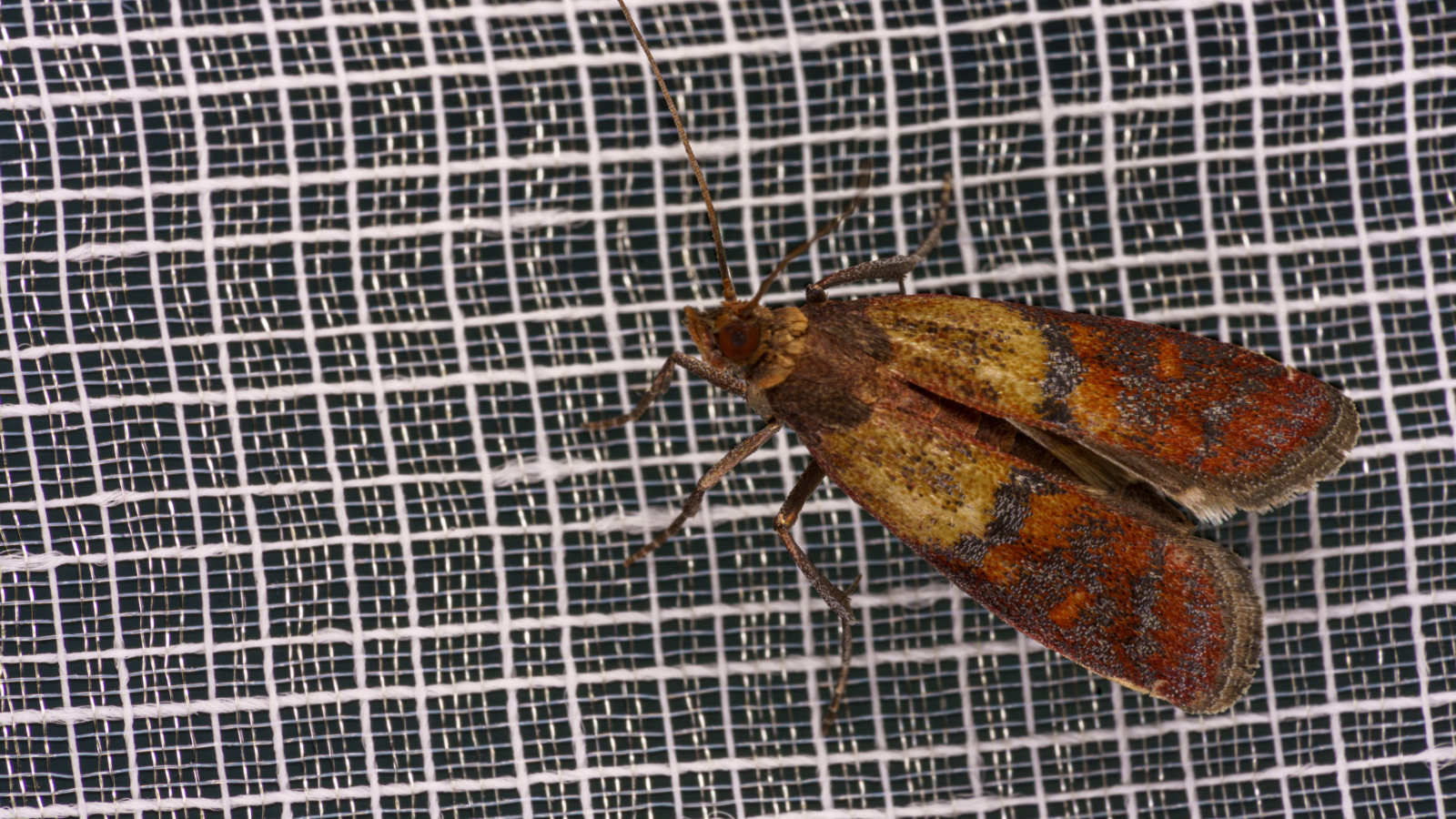Could this staple kitchen ingredient be a 'pick-me-up' for your plants this summer?
Some experts suggest that recycled coffee grounds can have benefits when used correctly in your garden
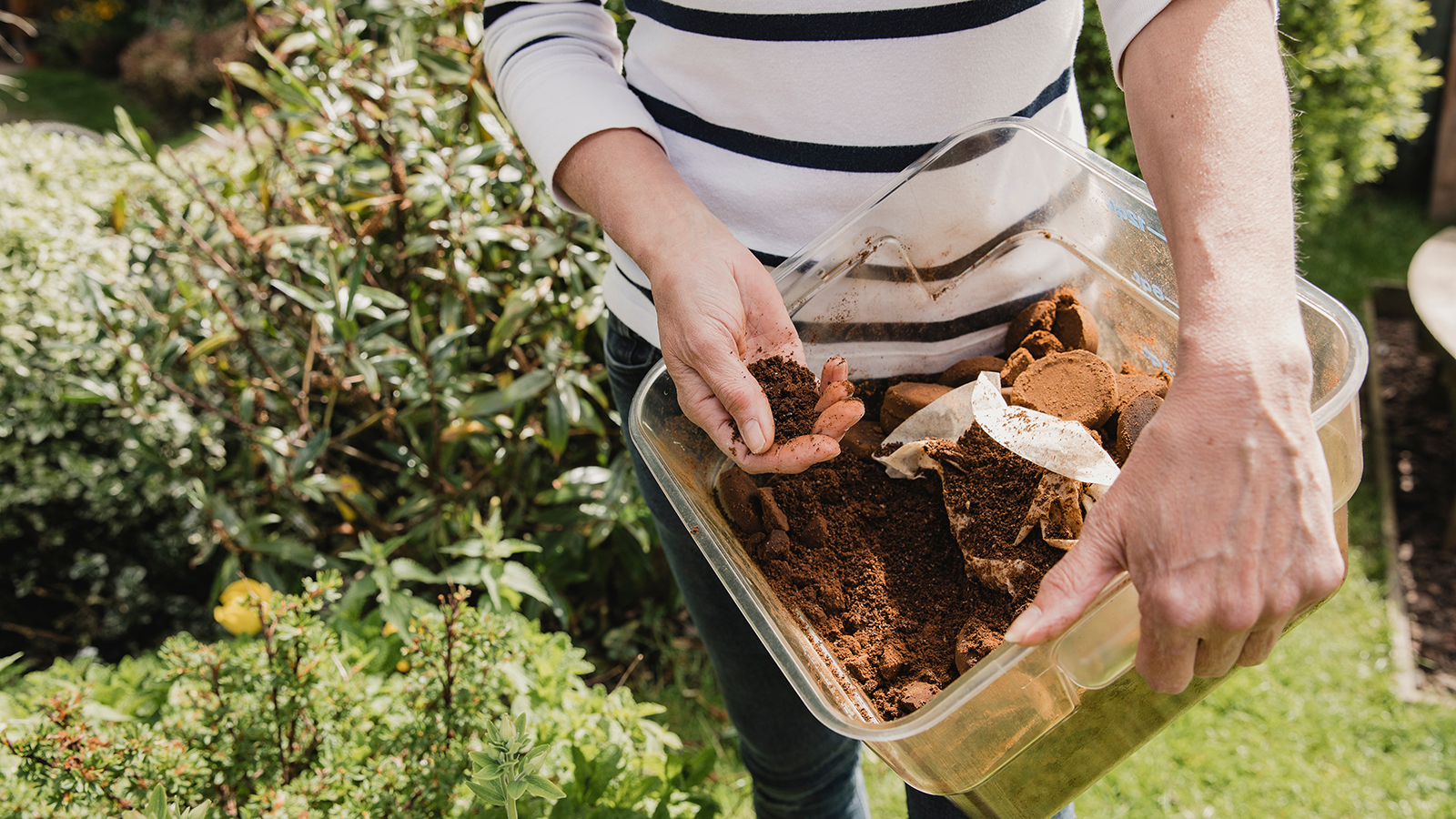
Whilst it's possible that this common kitchen waste product can be used outdoors, it's important to know how to use coffee grounds in the garden in a way that can boost the health of certain plants and not cause any plant damage.
Some garden experts suggest there are multiple uses for coffee grounds, as a fertiliser, mulch or a way to get rid of slugs. However, the jury's out on whether a caffeine injection will serve your garden effectively or if it's just a shot in the dark.
We go over the common uses for coffee grounds in the garden, but be advised, one cup too many might tip your plants over the edge.
1. Add coffee grounds to your compost
Now, this is possibly the most tried-and-tested way of using coffee grounds in the garden. They can be added to your eco-friendly garden compost heap along with other waste items like plastic-free teabags, vegetable peelings and egg shells.
Garden designer, Eliza Gray is in favour of this method as "they can help with soil structure as part of a mixed compost bin, which is the best way to recycle them."
Chris Bonnet, owner of Gardening Express, adds: "Not only do coffee grounds break down quickly in compost, but they also help create a nutrient-rich mixture that can be used to nourish your plants. They provide the three major macronutrients for plant growth – nitrogen, phosphorus, and potassium."
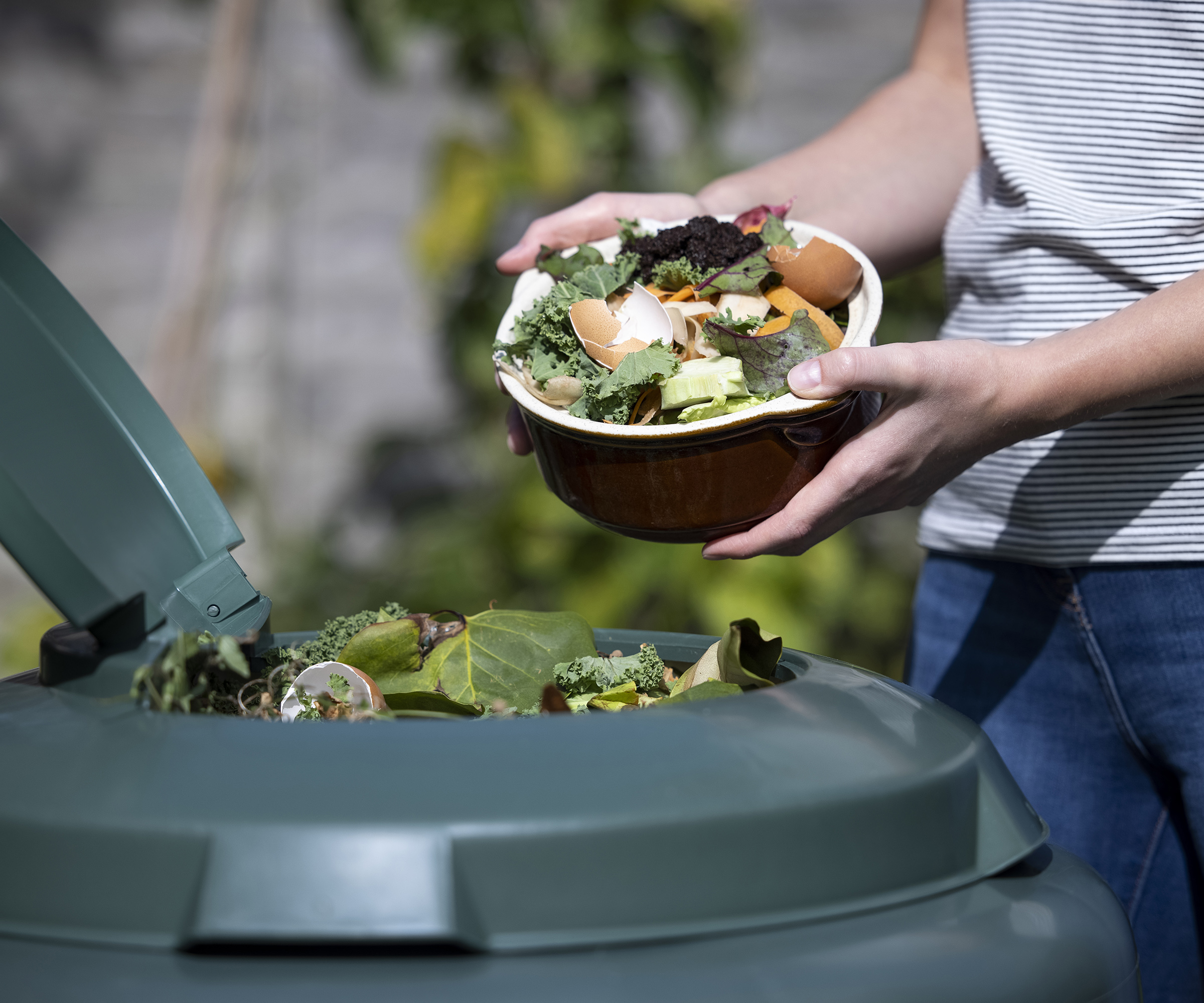

Chris Bonnett is the founder of online garden centre GardeningExpress and has been in the horticulture industry for over 20 years.
2. Create a liquid fertiliser
"Coffee grounds add organic material to the soil, helping water retention, aeration and drainage. Leftover diluted coffee can create a liquid plant fertiliser by mixing two cups of brewed coffee grounds with five gallons of water in a bucket overnight," advises Lewis Spencer of Coffee-Direct.co.uk.
Bring your dream home to life with expert advice, how to guides and design inspiration. Sign up for our newsletter and get two free tickets to a Homebuilding & Renovating Show near you.
"Coffee grounds have a varied amount of essential nutrients in each batch, but they all contain nitrogen, potassium and phosphorus alongside micronutrients. Plants such as carrots, azaleas and roses would appreciate a nice boost from coffee fertiliser. Tomatoes do not like the grounds," adds Lewis.
For a more tried-and-tested nutrient-rich fertiliser, try Westland Fish Blood and Bone from Sainsbury's. To fertilise a lawn it's best to use a specialist lawn feed rather than a coffee blend.
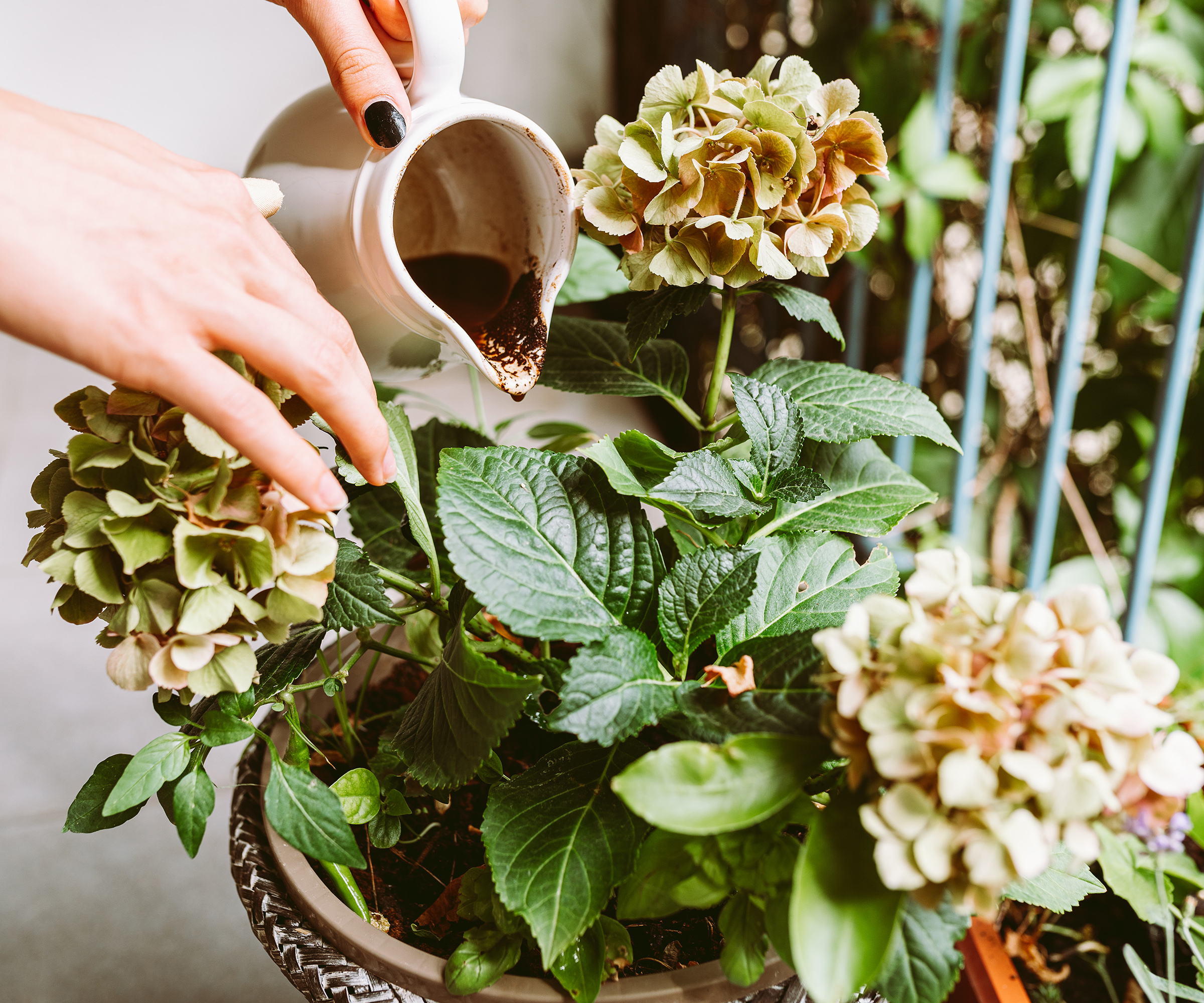
3. Use them as a slug repellent
The effectiveness of coffee grounds as a chemical-free garden slug repellent is up for debate, however, some evidence suggests that slugs dislike the caffeine content, and if they ingest too much, they will essentially be poisoned.
Additionally, dried-up, coarse coffee grounds may act as a barrier to slugs and snails, as it has been suggested that they dislike passing over the abrasive texture.
“Coffee grounds can act as a natural deterrent for slugs as the grainy texture makes it difficult for slugs to travel across. This will discourage them from venturing where coffee grounds are present, so simply scatter a thin layer around your plants to help keep slugs at bay,” suggests Chris Bonnet.
For an alternative, humane slug repellent, consider using copper tape around your plants. Try ASVE Adhesive Copper Slug Tape at Amazon.
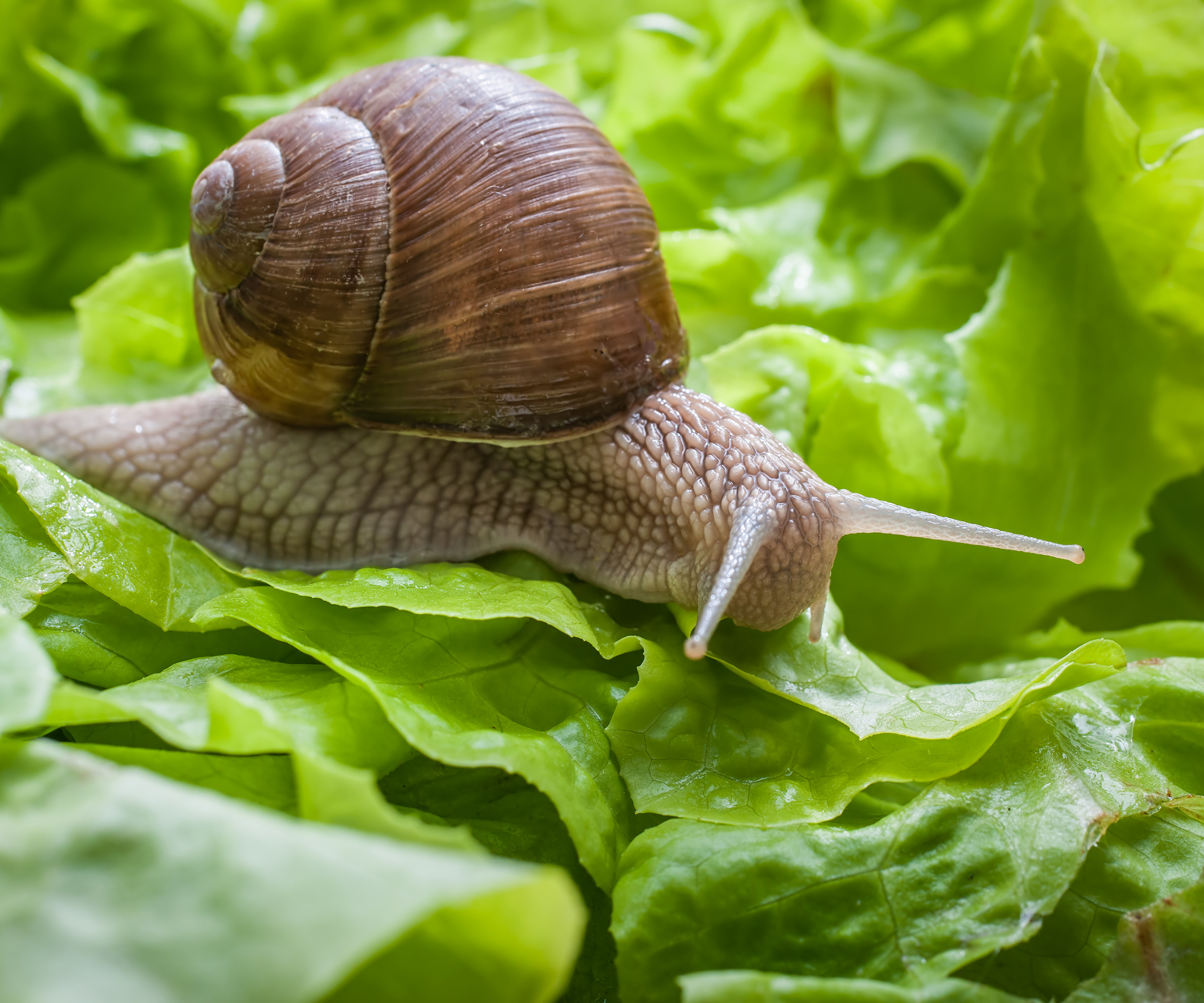
4. Mulch your plants
"Coffee grounds work best as mulch when mixed with other organic matter such as leaf mould. The combination will reduce the risk of clumps forming, which can become a barrier to water and suppress the growth of your plants," says Lewis Spencer.
It's important to note that simply tipping your grounds directly onto your soil could be damaging to your plants due to the caffeine content. Another recommended method is to add a thin layer of fresh grounds to your soil, then raking it in well so it doesn't become mouldy and develop a crust.
Avoid adding coffee grounds to seedlings and less established plants, including those with shallow roots like lettuce.

Eliza Gray has been helping homeowners to create beautiful gardens for more than 15 years.
FAQs
When should you not use coffee grounds in the garden?
“Avoid using coffee grounds on seedlings, as they can have an adverse effect and prevent germination. This is because caffeine acts as a natural herbicide, which prevents root development and stops seeds from sprouting," advises Chris Bonnet, owner of Gardening Express.
“Coffee grounds are also acidic, so they aren’t suitable for plants that prefer alkaline soil. This includes plants like thyme, lavender, broccoli, and geraniums.”
If you're looking for plants to fill your garden with colour this summer, then have a look at our list of plants for full sun.

Teresa was part of a team that launched Easy Gardens in 2018 and worked as the Editor on this magazine. She has extensive experience writing and editing content on gardens and landscaping on brands such as Homes & Gardens, Country Homes & Interiors and Living Etc magazine. She has developed close working relationships with top landscape architects and leading industry experts, and has been exposed to an array of rich content and expertise.
In 2020 Teresa bought her first home. She and her partner worked alongside architects and builders to transform the downstairs area of her two bedroom Victorian house in north London into a usable space for her family. Along the way she learned the stresses, woes and joys of home renovation, and is now looking to her next project, landscaping the back garden.
